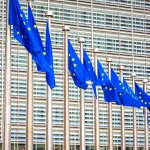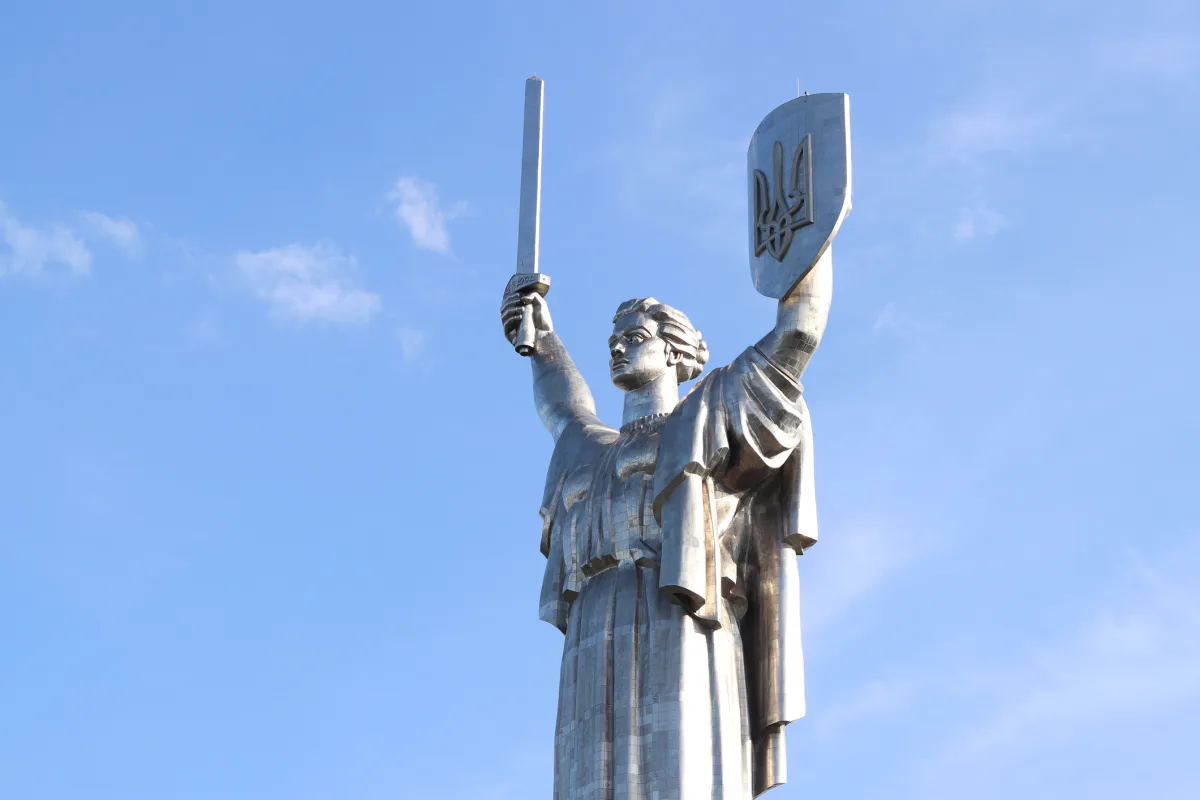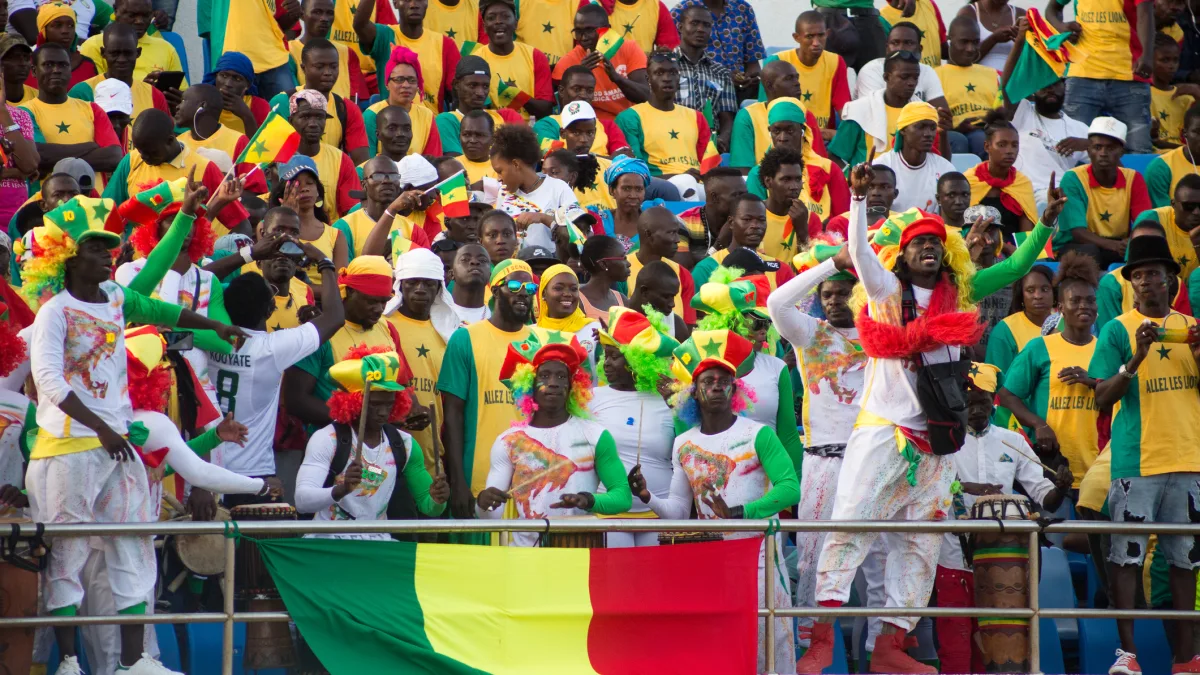Popular labels such as ‘Ukraine Crisis’ or ‘Ukraine War’ lead many people to believe that the Russo-Ukrainian War is a regional problem in East-Central Europe.
According to this misjudgment, a Ukrainian leadership more submissive to Russia could have avoided the unfortunate war and could prevent the spread of the conflict to other parts of Eastern Europe (and beyond) by making territorial and political concessions to Moscow.
From a historical and comparative perspective, the Russo-Ukrainian War looks very different. It is only one of several manifestations of Moscow’s neo-imperialism and merely one expression of more general regressive developments in the world since the end of the 20th century.
Russia’s attack on Ukraine is merely a repetition, manifestation, and anticipation of pathologies that plague not only Central and Eastern Europe but also other regions of the world. The so-called ‘Ukraine Crisis’ is neither an isolated case nor a local problem. It is less a trigger than a symptom of a larger disintegration in the geopolitical and legal order of the plant, in recent years.
At the same time, the Russo-Ukrainian War is a struggle for the future of Europe. Moreover, Ukraine’s self-defence is about upholding the general principles of the immutability of state borders and inadmissibility of acts of genocide such as Russia’s current displacement, deportation and Russification of unaccompanied Ukrainian children.
The war affects the integrity of the entire UN order established after World War II, as it calls into question the right of the Ukrainian republic to exist as an integral member of the United Nations, which—unlike the Russian Federation—has been a member of the UN since 1945. The Russo-Ukrainian War is therefore of not only pan-European but also of global significance.
Russia’s war is, to be sure, only one of several expressions of greater international disorder today. However, its course and outcome could either accelerate or slow down, if not reverse, the current general decline in observing elementary rules of inter-state relations. Even a partial success for Moscow in Ukraine would permanently destabilise international law and order. It could trigger further arms races and armed conflicts not only in Europe, but also other regions of the world.
A successful defence of Ukraine, on the other hand, would have three positive effects on international security, global democracy, and worldwide development.
First, a Ukrainian victory would stabilise the rules-based UN order that emerged after 1945 and was consolidated with the self-destruction of the Soviet bloc after 1989.
Second, it would foster a revival of democratisation trends around the world, which have stalled since the beginning of the 21st century and need new impetus.
And third, Ukraine’s experience in national defence and state reform can contribute to global innovation and revitalisation in various areas, from cybersecurity and drone use to public administration reform in transition countries.
Ukrainian success would stabilise the international order
The Russo-Ukrainian War is just one of several attempts by powerful states to expand their spheres of influence in their respective regions since the end of the Cold War. In the wake of a revival of pre-1945 foreign policy practices, revisionist governments are attempting or planning to expand uninvited into their countries’ neighbours.
The resulting military operations have been or are offensive, repressive, and unprovoked rather than defensive, humanitarian, and preventive. Several revanchist autocracies are attempting to replace international law with the principle of Might Makes Right.
An early example from the post-Cold War period was Iraq’s annexation of Kuwait in 1990, which was reversed by an international coalition in 1991. Another example from the 1990s was Serbia’s revanchist aggression against other former Yugoslav republics that were once ruled from Belgrade. During this period, Russia also began creating separatist republics’ controlled from Moscow within Moldova (i.e., Transnistria) and Georgia (i.e., Abkhazia and “South Ossetia”).
At the same time, Moscow ruthlessly suppressed the emergence of an independent Chechen republic on its own territory.
The Kremlin’s full military attention has only recently turned to Ukraine. Not only did Moscow create so-called ‘People’s Republics’ in the east Ukrainian regions of Donetsk and Luhansk in 2014, with partly irregular, partly regular troops, but Russia also occupied and annexed the southern Ukrainian peninsula of Crimea. Eight years later, Russia also illegally incorporated the Ukrainian regions of Donetsk, Luhansk, Zaporizhzhia, and Kherson into its official territory. Unlike the attempts by Iraq and Serbia in the 1990s, the international community’s response to Russia’s border revisions remained half-hearted.
The West’s timid responses have only led to further Russian adventurism. Moscow is now demanding that Kyiv voluntarily cede all parts of the four Ukrainian mainland regions that Russia annexed in 2022. This even includes some parts of Ukraine’s state territory that Russian troops were never able to capture. The Kremlin’s ultimate goal remains the annihilation of Ukraine as a sovereign state and of the Ukrainian nation as a cultural community independent of Russia.
At the same time, Beijing is flouting established rules of conduct in the South and East China Seas and stepping up its preparations to incorporate the Republic of China on Taiwan into the People’s Republic by force. Venezuela has laid claim to territory belonging to neighbouring Guyana. Against this backdrop, numerous revisionist politicians, diplomats, and strategists in other countries are likely to be hatching similar expansionist plans.
Moscow’s official incorporation of Ukrainian territories into Russia is a particularly serious violation of international norms. These annexations were carried out by a permanent member of the UN Security Council, even though this body was created in 1945 to prevent, among other things, such border revisions, which had been frequent until then. The Kremlin’s behaviour is also worrying in view of Russia’s role as an official nuclear-weapons and depositary state of the 1968 Nuclear Non-Proliferation Treaty (NPT).
With its attempt to permanently dismember or even destroy Ukraine, Russia is acting in direct contradiction to its special status within the UN Security Council and NPT, as well as the special responsibility for the post-war international order that this entails.
The Kremlin is doing this even though Ukraine is an official UN member, a 1945 founding republic of the UN, and an official non-nuclear-weapon state within the Nuclear Non-Proliferation Treaty. This undermines the normative, political, and psychological foundations of both the United Nations and the world-wide nuclear non-proliferation regime.
Russia has turned its privileges as a permanent member of the UN Security Council and an official nuclear-weapons state under the NPT into instruments for attempt to officially expand its already vast state territory and to eradicate an independent nation that had once been a colony of the Tsarist and Soviet empires.
A Ukrainian victory over Russia would therefore not only be a regional triumph for international law and justice, but an event of greater significance. A Ukrainian success could become an important factor in consolidating the post-war UN order, developing rule-based international relations, and deterring future border revisionism around the world.
Conversely, a defeat for Ukraine or an unjust Russia-favouring victory would fuel territorial irredentism across the planet and normalise genocidal warfare. The Ukrainian struggle for independence is thus both an expression of broader global problems and, if successful for Kyiv, an instrument for solving them.
A Ukrainian success would revitalise international democratisation
Russia’s attack on Ukraine is not just one of several recent challenges to principles such as national sovereignty and the immutability of borders. It is also part of a broader negative global political trend in the early 21st century, namely the increasing confrontation between democracy and autocracy and the weakening of the former. The escalation of this fundamental political conflict is manifested, among other things, in the concerted attack by Russian, North Korean, Chinese, and Iranian anti-democrats on Ukraine as an, at least in the post-Soviet context, relatively liberal, open, and pluralistic nation-state.
An important internal factor in Russia’s invasion of Ukraine since 2014 is that Putin’s wars since 1999 have repeatedly served as sources of popularity, integrity, and legitimacy for his undemocratic rule.
Analyses of Russian public support for authoritarianism sometimes overlook the fact that the military punishment, subjugation, and/or oppression of freedom-loving peoples, such as the Chechens, Georgians, and Ukrainians, find broad approval among many ordinary Russians.
The support of a large part of Russia’s population for victorious military interventions— especially on the territory of the former Tsarist and Soviet empires— is an important political resource and social base for Putin’s increasingly autocratic regime.
Such regressive tendencies were already evident in Boris Yeltsin’s semi-democratic Russia of the 1990s, with Moscow’s unvarnished military interventions in the internal conflicts of the republics of Moldova and Chechnya in 1992 and 1994, respectively.
Under Putin as prime minister (1999–2000, 2008–12) and as president to this day, however, the brutality of Russia’s armed operations, especially outside its borders, has increased rapidly. This radicalisation is not only a consequence of escalating Russian irredentism per se, but also an effect of fundamental changes in the political regime within Russia. Moscow’s increasing aggressiveness abroad has been accompanied by a crackdown on dissent at home since Putin came to power in August 1999.
The Kremlin’s growing aggressiveness toward the West and Ukraine did not follow by chance the Ukrainian anti-authoritarian uprisings of 2004 and 2014. It had a lot to do with the triumphant victories of the liberal-democratic Orange and Euromaidan revolutions in those years. Ukraine’s domestic political development not only challenges Russia’s neo-imperial claims to Moscow’s largest former colony. The democratising Ukrainian state is also a conceptual counter-project to the authoritarian state model prevailing in the post-Soviet space. The mere existence of a relatively democratic Ukraine calls into question the legitimacy of the post-communist autocracies in Russia, Belarus, Azerbaijan, and Central Asia.
The Ukrainian struggle for independence is therefore not only a defence of international law and the international order, but also a battle for world-wide democracy. The conflict between pro- and anti-democratic forces is global and had already intensified before, parallel to, and independently of the Russo-Ukrainian War.
At the same time, the confrontation between Russian autocracy and Ukrainian democracy is a particularly epic battle between the two political principles of order, in the heart of Europe.
If Ukraine wins, the international alliance of democrats will prevail, while the axis of autocrats around Putin will lose. In this scenario, not only will other democracies become more secure, self-confident, and dynamic. It is also likely that more authoritarian regimes will falter, especially in Eastern Europe, the Caucasus, and Central Asia. Diffusion, spillover, or domino effects of such changes in the post-Soviet space could in turn give new impetus to democratisation elsewhere.
Conversely, a Russian military success or victory in Ukraine would embolden autocratic regimes and anti-democratic politicians worldwide. In such a scenario, democratic forms of government and open societies would be stigmatised as weak, ineffective, and impotent. The recent global decline of democracy would be not reversed but continue and possibly accelerate. The so-called ‘Ukraine Crisis’ is not the cause of the current problems facing the idea of democracy worldwide. However, a just, internationally lawful, and lasting solution to it would revive international democratisation.
A Ukrainian success would help transfer useful innovations
A third, hitherto underestimated aspect of Kyiv’s contribution to global progress is the growing number of new cognitive, institutional, and technological developments in Ukraine that can also be applied elsewhere.
Even before the escalation of the Russo-Ukrainian War in 2022, Kyiv initiated a number of domestic reforms that are also relevant for the modernisation of other transition countries. After the victory of the Euromaidan uprising, or ‘Revolution of Dignity’, in February 2014, Ukraine began a fundamental restructuring of the relationship between the state and society.
This included the creation of several new institutions to combat corruption, including an anti-corruption court and an anti-corruption prosecutor’s office, as well as a corruption prevention agency and an investigative office for bribery cases.
What is new about these institutions is that they are dedicated exclusively to preventing, detecting, and prosecuting embezzlement, fraud, and nepotism. In April 2014, Ukraine began a far-reaching decentralisation of its public administration system, leading to the comprehensive municipalisation of the country. The reform transferred significant powers, finances, and responsibilities from the regional and national levels to local self-government bodies of amalgamated communities, which have now become important centres of power in Ukraine.
The Euromaidan revolution also led to a reshaping of relations between state and non-state organisations. Like other post-Soviet countries, early independent Ukraine suffered from alienation between central state officials and civil society activists. After the victory of the ‘Revolution of Dignity’ in 2014, this divide began to close.
For example, the famous Kyiv-based Reanimation Package of Reforms is a coalition of independent think tanks, research institutes, and non-governmental organisations that has prepared important new reform laws for the Verkhovna Rada (Supreme Council), Ukraine’s unicameral parliament, over the past 10 years.
Also in 2014, Ukraine, Moldova, and Georgia signed far-reaching association agreements with the EU that are unique in this form. The three bilateral mammoth pacts go far beyond older cooperation agreements between the European Union and non-member countries. They include so-called deep and comprehensive free trade areas between the EU and the three associated post-Soviet states.
Since 2014, these particularly large association agreements have been gradually integrating the Ukrainian, Moldovan, and Georgian economies into the European economy.
These and other regulatory innovations related to or originating in Ukraine have broader normative significance and greater political potential. They offer reform templates, institutional models, and historical lessons for other current and future transition countries, not only in the post-Soviet space.
Ukraine’s experience can be useful for various nations seeking to transition from a traditional to a liberal order, from clientelist to pluralist politics, from a closed to an open society, from oligarchy to polyarchy, from centralised to decentralised rule, and from mere cooperation to deep association with the EU.
While Ukraine’s post-revolutionary developments are particularly relevant for transition countries, its recent war-related experiences and innovations are also likely to be of interest to established democracies, not least NATO member states. This diffusion potential concerns both the knowledge gained in Ukraine about hybrid threats and how to defend against them, and the rapid technological and tactical modernisation of the Ukrainian armed and security forces fighting Russian troops and agents on the battlefield and in the hinterland.
Since 2014, Ukraine has been the target of Moscow’s multilateral attacks—more than any other country in the world—with irregular and regular units, in the media and cyberspace, in domestic and foreign policy, and on its infrastructure, economy, as well as religious, academic, educational, and other cultural institutions.
Since February 24, 2022, Ukraine has been engaged in a dramatic struggle for survival against a nominally far superior aggressor. The Ukrainian government, army, and society have had to adapt quickly, flexibly, and thoroughly to this existential challenge. This has included the rapid introduction of new types of weapons and applications, such as a wide range of unmanned aerial, aquatic, and land vehicles, and their deployment with the help of artificial intelligence, among other things.
Ukraine had to be highly innovative in a range of military and dual-use technologies in order to withstand the deadly Russian attack. In areas such as power transmission and storage, electronic communications, information verification, emergency medicine, mine clearance, post-traumatic psychotherapy, and the reintegration of veterans, the Ukrainian government and society had no choice but to respond swiftly and decisively. While Ukraine often draws on foreign experience, equipment, and training, it is also constantly developing its own innovative equipment, approaches, and mechanisms that could be useful elsewhere. Ukraine’s knowledge and experience will be particularly beneficial to countries that may face similar challenges.
Ukraine as a problem solver
Many observers see Ukraine merely as a disruptive factor in maintaining or restoring the European security order and international cooperation practices. However, the general rise of global revanchism and authoritarianism in recent years began largely independently of developments in Ukraine. The regional escalation of Moscow’s neo-imperialism in the post-communist space in general, and the genocidal obsession of Russia’s imperial nationalists with Ukraine in particular, has little to do with Ukraine as a projection screen for such Russian pathologies.
Ukraine, like Moldova, Georgia, and other states under external pressure, is merely a victim and not the cause of growing international tensions and anti-democratic trends.
The Russian military attack on Ukraine since 2014 has turned this hitherto little-noticed European country—nolens volens—into a flashpoint for global regressive tendencies. The escalation of Moscow’s attack into a full-scale invasion in 2022 transformed Ukraine into an object of strategic decision-making about the future world security order, a fateful confrontation between democracy and autocracy, and a source of important technical and administrative innovations with international diffusion potential.
In the wake of Ukraine’s transformation and national defence efforts in recent years, Ukrainians are fundamentally reshaping their state, economy, army, and society. The new solutions, reform models, and key technologies that have emerged and are emerging from this Ukrainian process are likely to be of interest to many countries around the world, if not of vital importance to some.
Photo: Dreamstime.







